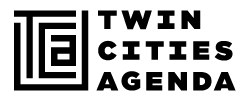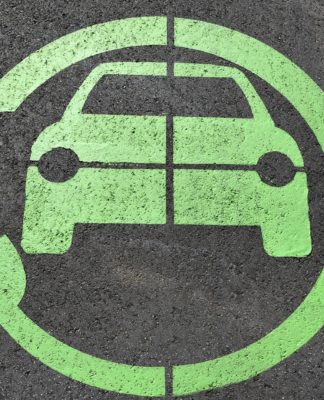
Eating vegan is not a bad thing. In fact, there’s a lot of good that can come from a plant-based diet, as we’re discovering out more and more. But you should have all the facts. There is a lot of misinformation and manipulation that plagues Netflix’s new documentary What the Health?, for example – much of which does considerably more harm than good.
But it can be frustrating, of course. We look to films like these to give us the answers, or at the very least a bit of guidance in a world of information overload. And, also of course, it’s hard to sort through everything we see, hear, learn/unlearn on a daily basis.

But this is exactly the problem with hyperbolic documentaries like What the Health? in perpetuating, and ultimately fostering, this culture of confusion and misinformation: Whatever issues the documentary may be trying to address end up lost completely in its own agenda.
As Ranelle Kirchner (MS, RDN, LDN), a local dietitian who focuses on diabetes, obesity, and other issues relating to health and diet, tells us,
“The discussions surrounding the science of meat, dairy, eggs and fat was focused on cherry-picked research that pushed an agenda of veganism and animal rights. In fact, they misrepresented their key meta-anaylsis, which included a generic keyword search of ~800 studies. What they neglected to say was only 7 studies qualified for their meta-analysis to show correlation between meat, egg, and dairy and chronic disease. Additionally, they deemed it as a causation (effect), which is different than a correlation (relationship). If one action causes another, then they are correlated, but if two things occur together that doesn’t mean that one caused the other.”
Okay. So the documentary has a clear agenda of its own. Kip Andersen (producer) and Keegan Kuhn (director, producer) are animal activists with a clear mission of getting people to stop eating meat.
The issue, then, is not that What The Health? really, really just wants you to eat better. It’s that they want to skew the research in their favor. It’s not a movie simply about the tenets of eating vegan, or how to better yourself.
“The directors fail to allow the non-profits and Big Ag Business to respond to his questions. In the documentary, they show clips of Kip calling businesses like the American Cancer Society and Susan G Komen organization and demanding answers to his questions. However, the individuals he speaks to are not health professionals and shouldn’t be the ones answering his questions.”
And disregarding fact in favor of personal views and opinions.
“Their overarching theme is that a vegan diet is the answer to preventing and treating all chronic disease. This is completely false. What’s worse is that it has caused many people to shift their diets. A vegan diet can be just as unhealthy as the Atkins diet, which is largely protein-based. The fact is that there are no set answers, and nutrition is based on the individual. Yes, there are messages worth exploring within the documentary but it ultimately is scientifically illiterate and dishonest.”
And it doesn’t have to be this way.
“Perhaps it would have been better if they stuck to the growing research centered around an emphasis in plant-based foods as a means to negate chronic disease, rather than say vegan diets are the answer. The fact is, we don’t have an answer.”
It’s never about cutting one thing, or everything out of your diet. That is, pure and simple, not a healthy way to try and get healthy.
The simplest answer?
“Eat in moderation,” Kirchner says, “not in excess, and be sure to include a variety of foods. And [be sure to] eat the rainbow.”
Eat the rainbow?
“Eat the rainbow refers to including all colors in your diet: From red fruits and vegetables all the way down to purple fruits and vegetables. And to be aware of the colors that are hard to find in nature; purple especially. And keep it balanced: Not just one color. Not just green vegetables, etc.”

But how do we separate fact from fiction in this age of agenda-driven documentaries like What The Health?, and the constant new “studies” and pseudo-science breakthroughs that dominate our social media feeds?
“When seeking advice about anything, go to the experts in that field. As medical professionals, we are held to deliver and consult on evidence based research, not opinion. If you need more specific. information on diets/food-related issues, seek a dietitian. If you have issues with your skin, you seek a dermatologist. You wouldn’t go to a mechanic to fix your plumbing would you?”
Probably not.
“Many times, as a dietitian, I have had to field statements like ‘My trainer told me to take these dietary supplements and to stop eating carbs so that I lose weight,’ from clients. The key thing to remember is that care is individualized, and a one-size-fits-all mentality on diet is never the answer.”
And, ultimately, the idea is that we don’t (or soon won’t) need documentaries like these in the first place.
“Generally speaking, eating doesn’t need to be difficult. Diets are unrealistic, because it’s about fully integrating lifestyle-changing behaviors. When looking at all the trendy diets that hit the media, think to yourself, ‘Does this sound too good to be true? Am I missing any food groups/specific foods or macronutrients (carbohydrates, fat and protein)?’ If you answered yes to these questions and is not a behavior you could sustain for a lifetime, then you should know to seek counsel from a dietitian about what you heard in the media.”
It’s up to us as consumers, yes, as it always has been. Looking for quick fix, the ultimate solutions, the man on a white horse to come and save us is, simply, wrong. Health is like anything else: you have to work hard to get where you want, and there is no single, easy approach that is going to solve your, or your friend’s, or your family’s, your family friend’s problems all at once.
No matter how many films come out telling you that there is.
The important thing is to remain vigilant; to ask questions, find as many sources as you can, never stop seeking the information you need to know what is best for your body.
But to start with, the now-ubiquitous Michael Pollan quote comes to mind: “Eat food. Not too much. Mostly plants.”
As Kirchner agrees, “Everything in moderation.”
Read this article also: Vegan diets for kids: Proceed with knowledge
Ranelle Kirchner can be found at www.ranellekirchner.com and contacted ranellek@gmail.com.
















